Seeds of Peace Summary
● Seeds of Peace is an organization that works to promote positive interaction between young people on opposite sides of political conflicts.
● Seeds of Peace provides an annual summer camp where teens and educators from communities divided by conflict can meet and engage in open discussions. They also work in these communities at home and abroad year-round.
round.
● For #GivingTuesday, Onnit is asking for $1 donations to Seeds of Peace when you make any purchase on our site. Onnit will match the donation 100%.
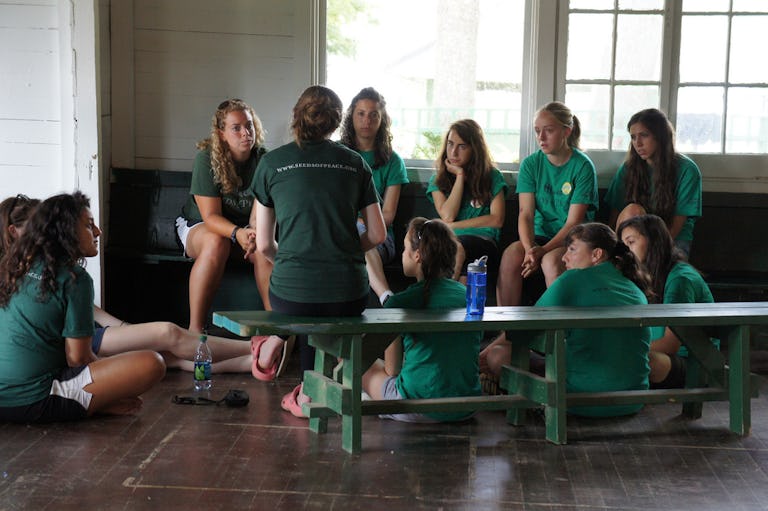
Whatever the reason you came to this website, we want to provide what you’re looking for. Whether it was to get information on training, nutrition, or ways to relieve stress or promote a healthy mindset, we try to cover everything that contributes to Total Human Optimization—being the best, most fully developed person you can be.
Part of that mission to better yourself, we believe, is working to better the world around you, which is why Onnit is a consistent supporter of community activism. This year, in the spirit of Giving Tuesday, we want to shine a light on one of our favorite non-profits—Seeds of Peace.
Founded in 1993, Seeds of Peace is an organization that seeks to develop the community leaders of tomorrow. It operates a summer camp in Otisfield, Maine, about an hour northwest of Portland, where young people from areas of political conflict, war, and poverty around the world gather for several weeks.
Each year, the camp hosts around 300 teens aged 14 to 16 from Israel, Palestine, Egypt, Jordan, India, and Pakistan, as well as the U.S. and U.K. In some respects it’s like any other summer camp—kids spend time outdoors playing sports, canoeing, and doing arts and crafts.
Onnit’s own Master Trainer Cristian Plascencia even visited Maine last summer to take the campers through an unconventional workout. But their summer is unique and memorable for a much different reason.
Each day, the kids—or “Seeds,” as they’re called—spend almost two hours meeting in small groups run by professional dialogue facilitators. There, they discuss their differing backgrounds and cultures and learn to listen and, hopefully, even empathize with each other—an opportunity they’d likely never get at home.
“They get to meet someone from the other side of their conflict, often for the first time,” says Eric Kapenga, who worked as a counselor at the camp for nine sessions and is now Communications Specialist for Seeds of Peace. “Someone their own age, and in a neutral setting. It’s really powerful.”
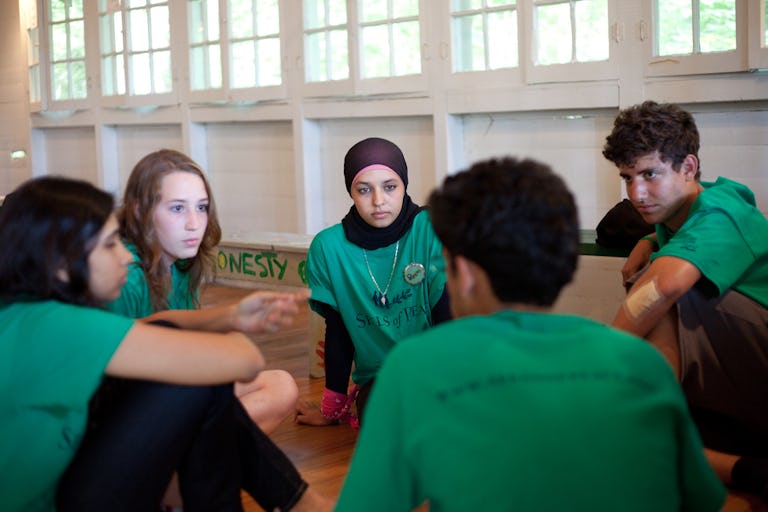
Kapenga points out that the only Israelis most Palestinians ever meet are armed soldiers at checkpoints. For most Israelis, the only Palestinians they come across are ones they see on TV in the context of terrorist acts. “It gives the Seeds a chance to hear the other side’s narrative.”
Over 6,000 young adults have been through the program over the years, and some have gone on to bring outstanding change to their communities.
One of Kapenga’s campers, a Pakistani Seed, came to realize through conversation with Indian Seeds that the Indian version of their shared history was completely different from what he had learned in school.
“So he decided to create a textbook that juxtaposes the official Indian version with the Pakistani one so you can see how each side presents history in a very different way—a way which furthers the conflict.” That book is now being shared in schools in both India and Pakistan.
Sarah Brajtbord attended camp when she was a high school student from Dallas, Texas. “For me, the biggest takeaway was the way in which it opened up my world view,” she says. “I wasn’t living in my Dallas bubble anymore.
I began to see connections between what was going on in my community and what was happening overseas. I now had friends who were living there so I started experiencing the news that was coming out of there in a much more personal way.
It really pushed me to not take things at face value and not take statements I heard as absolute truths.”
Brajtbord fell in love with the organization and is now the Assistant Camp Director and U.S.-based Programs Manager.
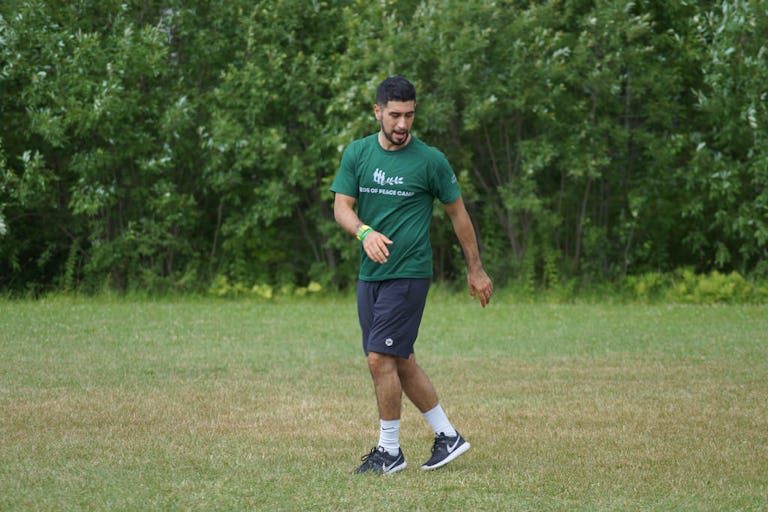 Cristian Plascencia, a Onnit Academy Master Trainer, visited Seeds of Peace last summer to introduce the kids to Unconventional Training.
Cristian Plascencia, a Onnit Academy Master Trainer, visited Seeds of Peace last summer to introduce the kids to Unconventional Training.
The process to become a Seed and attend the camp is arduous—prospects are either selected by their government or must go through a lengthy application process. Kapenga says only about five percent of applicants make the cut. Still, most campers don’t arrive enthusiastic to learn.
“Not everyone wants to listen and engage with the other side,” says Brajtbord. “They come to tell the other side, ‘I’m right and you’re wrong and I’m here to speak to you about the realities of my life.’ Part of our process is breaking down a lot of the national identities they have, because none of us are sole representatives of our communities.”
“The Seeds often come in overly polite,” adds Kapenga. “They believe the other side is untrustworthy, so they’re extra careful around them. The interaction is very superficial at first. But when they get to know each other, they open up and really start to communicate.
We do group challenge exercises with them in addition to the dialogue sessions in order to build communication and teamwork. For example, there’s one challenge where pairs of Seeds work together to cross a rope obstacle that’s 40-feet high.”
The Seeds of Peace program doesn’t end when summer does. The organization runs year-round leadership development initiatives for Seeds in their home communities and spreads the gospel of open communication to other students as well—including those who would never be able to attend the camp.
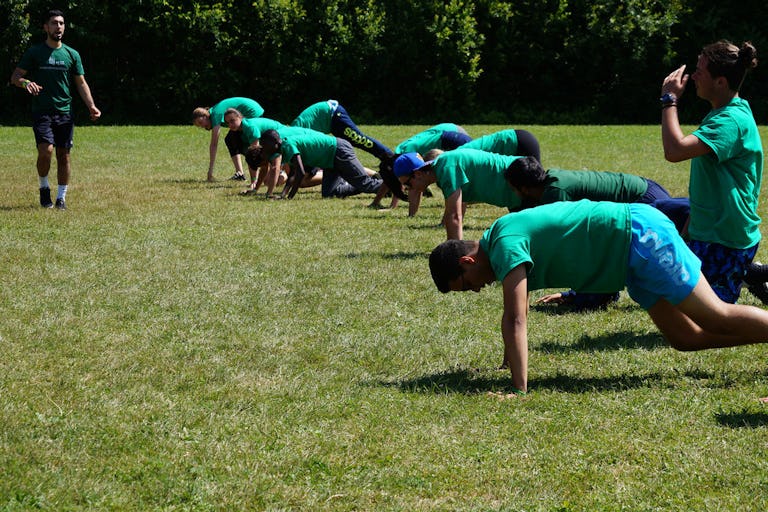
To them, Brajtbord offers the following: “If you’re passionate about making a difference in the world, continue to develop it. You are not alone in wanting to create social change. There’s power in numbers.”
In keeping with the tradition of Giving Tuesday, Onnit is asking its customers to donate to Seeds of Peace. For today only, give just one extra dollar when you check out after buying any Onnit product and we’ll match the donation.
Onnit has been able to give the organization over $45,000 in donations since October of 2015.
For more information, visit seedsofpeace.org.
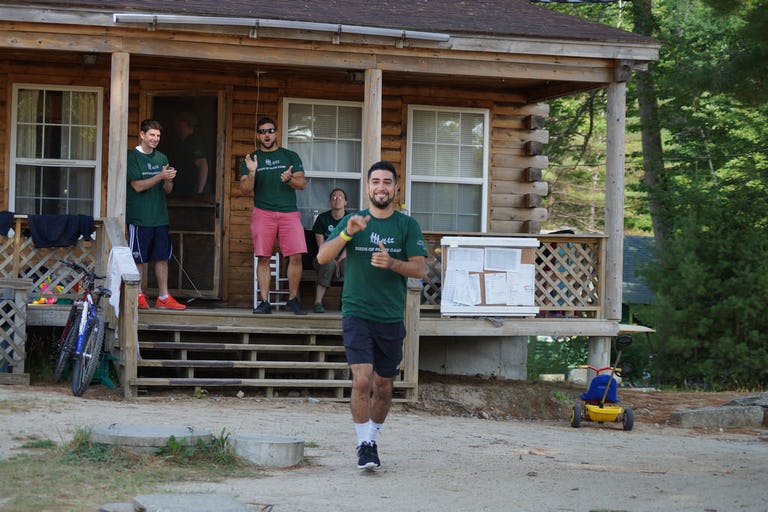
)





